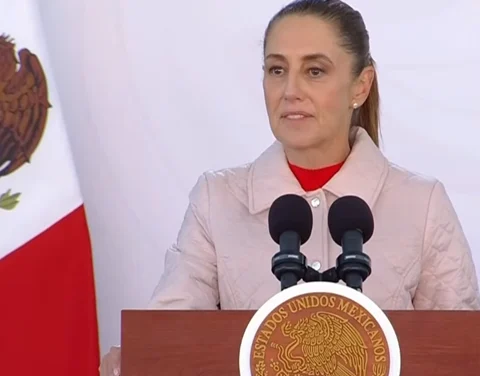S
According to the chronicles of US media, at the beginning of the Kamala-Trump debate, she approached him to greet him and said: Let’s have a good debate
. Trump responded: have fun
.That is what she did, the media celebrated, although they also highlighted the rather marginal impact of the debate on the election result.
One unexpected gain from the debate was perhaps the likely beginning of the discrediting of narratives with outlandish lies, outlandish antics supplanting political argument. Kamala’s attitude, gestures, comments during the debate would have discredited Trumpist verbiage about doctors who execute babies
(this is how Trump defends his position on abortion); Venezuelan criminals
sent to the US from prisons and mental hospitals
inflation of 21 percent
or Haitian immigrants eating the pets of Ohio residents.
Migration has been, for more than a century, a problem that the great empire is unable to solve. In October 2018, migrants responded to the difficulties and border blockades that Trump instigated by organizing the first caravan; this is now the form of migration. In May 2019, Trump responded with a slap on the table, applying extraordinary tariffs to Mexican exports. Was that a solution? If Trump wins the election, we will see a problem that will provoke sharper political differences with Mexico.
Kamala defends a different discourse than Trump, but with her we will have the same problem without a solution, despite the praised economic integration of Mexico with the US. Worse still, the future of integration is increasingly unclear due to the fracture of the bipartisan consensus on the globalist liberal internationalism of US foreign policy. That consensus dominated from the beginning of the second post-war period. The position of Trump and the Republican Party today are the clear expression of the fact that this consensus has been fractured. And it is not an ideological issue.
US policies abroad no longer fit with its domestic conditions. Deindustrialization and the hollowing out of the middle class, decades of overseas overreach and hyperglobalization, the influx of immigrants and changes in the demographic composition of the empire have revived the isolationist impulses that dominated before World War II. Upon taking office in January 2017, Trump said: “The forgotten men and women of our country will no longer be forgotten. From this moment on, it will be America first. Every decision on trade, on taxes, on immigration, on foreign affairs, will be made to benefit American workers and American families.” He promised to free the US government from foreign burdens and focus attention and resources on the domestic front. Trump may sound crazy at any time, but that nationalist vision now has domestic supporters in sufficient numbers to elect him. Turning our gaze inward now has a broad social consensus.
For a long time, liberal internationalists dominated the scene. Biden belongs to that very broad segment of Democratic Party political leaders with that compelling vision: We are the indispensable leader
. On June 28, 2022, at the NATO summit in Madrid, for the first time US President Joe Biden set out the new higher purpose of that organization: “At this summit we have brought together our alliances to confront both the direct threats that Russia poses to Europe and the systemic challenges that China poses to a rules-based world order…” According to this geopolitical speech, the US would lead the fight of the democracies
against the autocracies
. A speech fully embedded in the old bipartisan internationalist consensus that no longer exists today.
However, given current military trends, intercontinental ballistic missiles, global economic interdependence, cyberspace interconnection, climate change, and much more, US distancing itself from international leadership and returning to isolationist behavior are not acceptable options for the US.
The empire is struggling without internal consensus when it is about to renew the power of the State. Internal views affirm that, for Kamala, the US today lacks the capacity, will and legitimacy to determine the facts of the world as it did. That she would agree to collaborate with China, while they compete vigorously
. Regarding Russia, she sees the conflict in legal (resolvable) terms of a violation of Ukrainian sovereignty by Russia, while Biden sees it in moral and political terms. As for Israel, Kamala is more sensitive to Israeli violations of international law (committed with the complicity of the US) in Gaza and the West Bank.
















